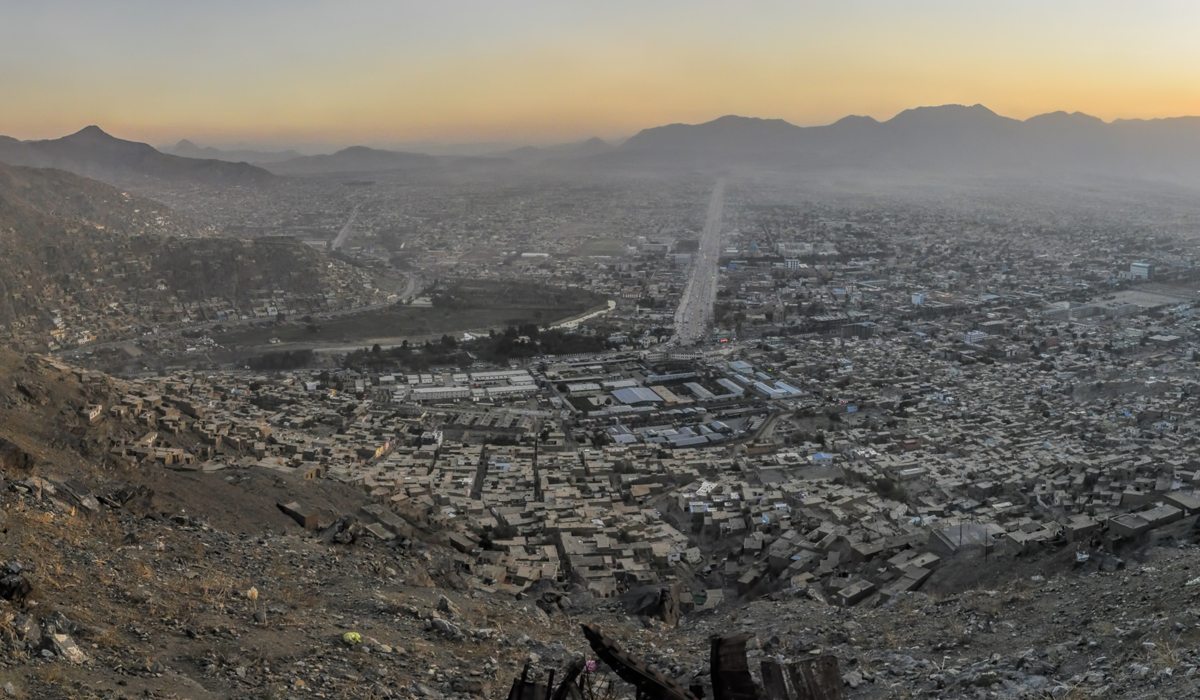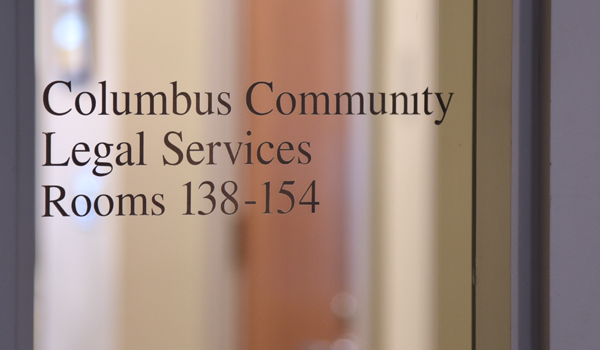 Students in the Immigrant & Refugee Advocacy Clinic (IRAC) at The Catholic University of America Columbus School of Law (Catholic Law) recently helped an Afghan journalist obtain asylum in the United States after he had been threatened and attacked by the Taliban for his work with an Afghan news station and with the former, U.S.-backed Afghan government. Student attorneys Yong Deng ‘23 and Aema Zaidi ’23 represented the journalist under the supervision of Visiting Clinical Assistant Professor Jocelyn Dyer.
Students in the Immigrant & Refugee Advocacy Clinic (IRAC) at The Catholic University of America Columbus School of Law (Catholic Law) recently helped an Afghan journalist obtain asylum in the United States after he had been threatened and attacked by the Taliban for his work with an Afghan news station and with the former, U.S.-backed Afghan government. Student attorneys Yong Deng ‘23 and Aema Zaidi ’23 represented the journalist under the supervision of Visiting Clinical Assistant Professor Jocelyn Dyer.
Based on Deng and Zaidi’s demonstration that the journalist had been persecuted due to his political opinion and that he had a well-founded fear of future persecution if he were to return to Afghanistan, the United States Citizenship and Immigration Service’s Asylum Office granted asylum to the journalist.
The journalist had long been an outspoken promoter of such democratic ideals as the freedom of religion, freedom of expression, voting rights, and the right to education for women and girls. He had expressed these views throughout his career and on a variety of platforms. But because these ideals stood in stark contrast to the ideologies espoused by the Taliban, he became a target of the oppressive regime. For over six years, he was threatened and harassed, including receiving death threats by telephone, and being fired upon by Taliban soldiers while in a car.
Once the U.S.-backed Afghan government fell to the Taliban, the journalist feared for his safety and fled to the United States. Upon arriving, he sought the assistance of IRAC, one of the clinics in Catholic Law’s in-house law firm, Columbus Community Legal Services.
 Deng and Zaidi diligently represented the journalist in all phases of an expedited asylum proceeding. The student attorneys conducted extensive interviews with their client and other witnesses to prepare a memorandum describing their client’s background and his harrowing run-ins with the Taliban. They exhaustively researched the conditions in Afghanistan that led to the journalist’s need to flee the country, including the Taliban’s demonstrated history of arresting and assaulting journalists, human rights activists, and government employees. And they effectively conveyed this analysis through a petition to an asylum officer. Notably, the student attorneys prepared the entire application in a matter of months due to the client’s desire to expedite the proceedings to attempt to reunite with family members who remain in Afghanistan.
Deng and Zaidi diligently represented the journalist in all phases of an expedited asylum proceeding. The student attorneys conducted extensive interviews with their client and other witnesses to prepare a memorandum describing their client’s background and his harrowing run-ins with the Taliban. They exhaustively researched the conditions in Afghanistan that led to the journalist’s need to flee the country, including the Taliban’s demonstrated history of arresting and assaulting journalists, human rights activists, and government employees. And they effectively conveyed this analysis through a petition to an asylum officer. Notably, the student attorneys prepared the entire application in a matter of months due to the client’s desire to expedite the proceedings to attempt to reunite with family members who remain in Afghanistan.
After interviewing the journalist—an event Deng had the opportunity to attend—the asylum officer agreed that the journalist met the rigorous statutory standards and granted him asylum.
 Zaidi said of her experience, “Working on an asylum case as a student attorney was humbling and rewarding. Our client’s optimism despite the struggles he faced in Afghanistan was inspiring and kept us focused. It feels great to know that our work made a difference for the better!" Deng added, “Our experience at CCLS has been instrumental in ingraining the quintessential roles of a lawyer—persuading, advocating, and advising.” He also noted that this case helped prepare him and Zaidi “to excel in our future legal careers. This high-stakes environment underscored the paramount importance of precision, diligence, and a deep sense of responsibility, attributes that are indispensable in the legal profession."
Zaidi said of her experience, “Working on an asylum case as a student attorney was humbling and rewarding. Our client’s optimism despite the struggles he faced in Afghanistan was inspiring and kept us focused. It feels great to know that our work made a difference for the better!" Deng added, “Our experience at CCLS has been instrumental in ingraining the quintessential roles of a lawyer—persuading, advocating, and advising.” He also noted that this case helped prepare him and Zaidi “to excel in our future legal careers. This high-stakes environment underscored the paramount importance of precision, diligence, and a deep sense of responsibility, attributes that are indispensable in the legal profession."
Jocelyn Dyer, the students’ supervisor on this case, lauded Deng’s and Zaidi’s ability to perform this work so quickly: “It can be difficult to work in an expedited fashion on a case that requires so much detail and the sharing of personal and scary details,” she said. But, she continued, “using the training they received on trauma-informed lawyering, the students were able to quickly build a rapport and trust with the client so that they could obtain the information they needed to win the case.”
Alicia Berard, a 3L student attorney in IRAC, is now working with the journalist to bring his wife and children to the United States.
